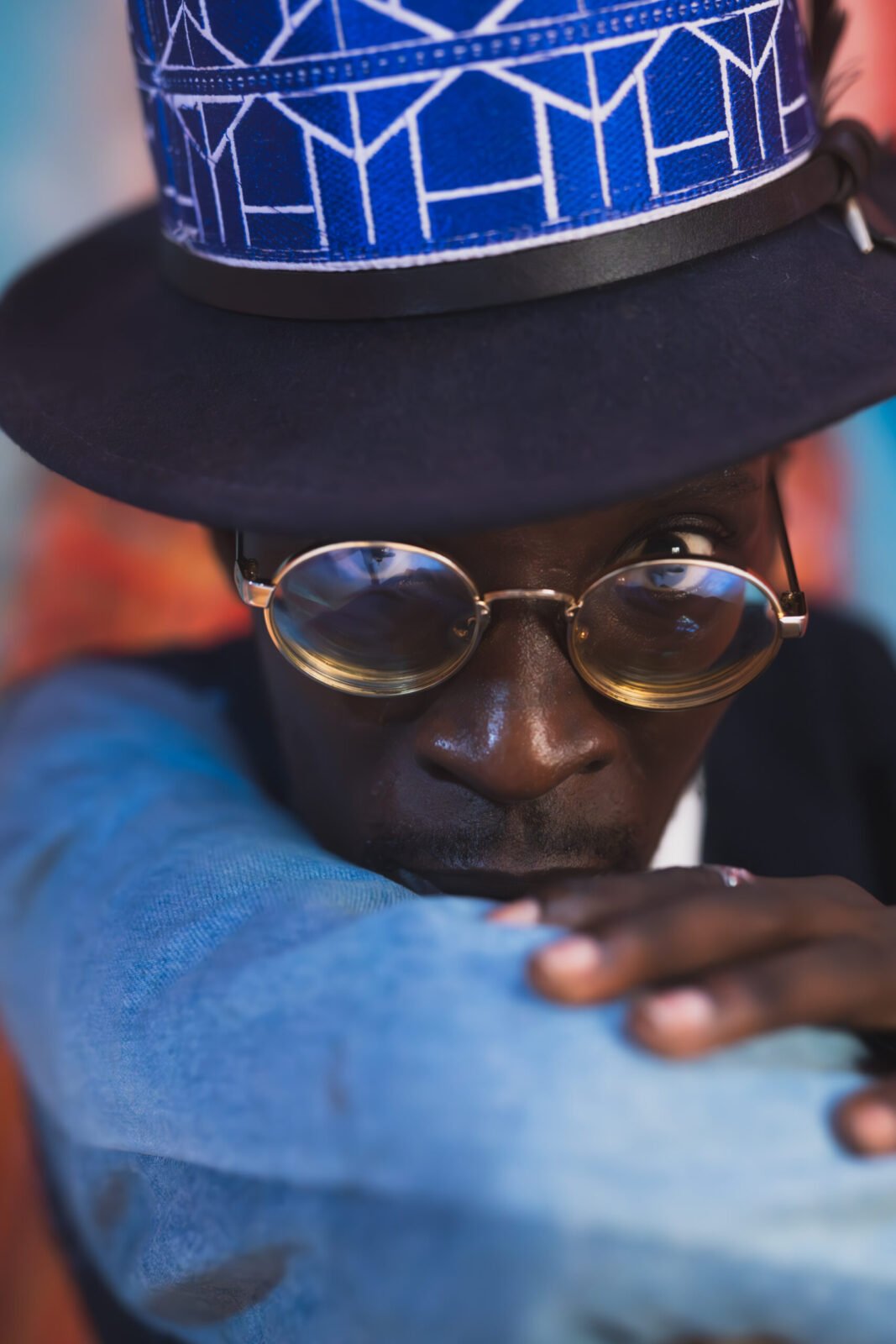From scoring the detective series “Sakho et Mangane” to collaborating with fashion designer Selly Raby Kane, sonic adventurer Ibaaku is a multidisciplinary artist who operates as much in the future as in the ancestral past.
Fresh from releasing his extraordinary new record Joola Jazz on Blanc Manioc/Miziku Tey Records, we spoke to him from Dakar about the new album and its muse, his multiple artistic practices, and why he identifies more with Africanfuturism than Afrofuturism.
What was your vision for Joola Jazz?
First of all it’s a journey into Jóola culture. In the south of Senegal in Casamance you have the Jóola people who have a really rich culture, in the widest sense. Musically and sonically, it’s something really interesting in Senegal. As a Jóola person I was interested in this. But the album also extends into other realms and is a bridge with other genres such as jazz, electronic music, and hip-hop.
I’ve been working on this project for eight years now. It took that long because it’s not just about the music. It was about research and documenting.
Growing up in town, in Dakar, I was disconnected from that culture and spirituality, and there were really important steps that I wanted to document. For instance there is an initiation called “Bukut” that is very important in Jóola culture. It happened in my village three years ago, but the last time before that was forty years ago. You can’t document it all because the future initiates enter a sacred forest and you can’t go there, but after that they come out and there’s a big ceremony.
I also wanted Joola Jazz to be a continuation of my last album, Alien Cartoon, which is about my character Ibaaku who is a hybrid from the future and who visits an African city.
Aside from Ibaaku, who else do we hear on Joola Jazz ?
One of my main collaborators on this record is Mr Cool Diabang who plays the bougarabou, a set of three drums that are very melodic and very bassy at the same time. It’s a really principle instrument for Jóola music and an inspiration, rhythmically for a number of the tracks. I also have Alibeta who is my partner in crime with whom I co-founded the label Miziku Tey and Aron Ottignon on piano and keyboards who appears on the track “Jazz Griots”.
Then I have Dioba, a vocalist from Mauritania and Brahim Wone on guitar on “Btwinen.” And I have Cameroonian guitarist Willy Etoundi and Amaiah Makeda on vocals on “Nuit à Yaoundé.” I wanted to work with them as I realised there were some similarities between some music from Cameroon and certain rhythms from Casamance.
What does being a multidisciplinary artist mean to you?
I’ve always existed in parallel universes. I started learning instruments very young in the 90s, my father was into photography and art in general, and my mum was into music. So I developed a visual sense I wanted to develop with my work, and from the start it was never one thing. It was always a wide range of possibilities and mediums. For me it’s about creating a world.
I recently watched an interview in which you were reflecting on Afrofuturism and how it’s useful as a label, but is getting at something much bigger. Would it be possible to expand upon that please?
Wow, it’s a big subject! I will say for me right now I resonate more with the term Africanfuturism popularised by the Naijamerican writer Nnedi Okorafor. Because, the culture I grew up with here in Senegal has always been what other people call `futuristic’. We always acknowledge an invisible world, we talk about spirits, and we communicate with this invisible world through music, dance and spirituality. Even though I resonate with the big heroes of Afrofuturism and it’s a big honour to be associated with that movement, it was always wider than that, and growing up it was something that was very present.
For instance the notion of time is very other here in Senegal. I also really like the idea of speculation, of how we take back our imagination. One of the ideas behind Joola Jazz was to imagine if I was an archeologist from the future discovering the music they had in the 2020s, and to create these hybrid genres.
It’s about our relationship with technology in Dakar and what technology means for us. For instance, here in Senegal, water or sand can be an interface to communicate with other realms. I always say that artificial intelligence is a mirror to ancestral intelligence.
Speaking of the future – What else are you currently working on?
[Laughing] Many things! Initially with Joola Jazz my idea was to create a soundtrack to a film that doesn’t exist, but now I’m actually working on that film! So there will be more visuals and of course shows.
Then with the label we are planning to release a number of artists like Satou Bamby and Alibeta…..Finally, we are also running two spaces here in Dakar, to bring a platform and move things in the scene.
Joola Jazz, IBAAKU's fourth album, is now available via Blanc Manioc/Miziku Tey Records. You can get your copy and listen to it HERE
Photo ©: DARKY


